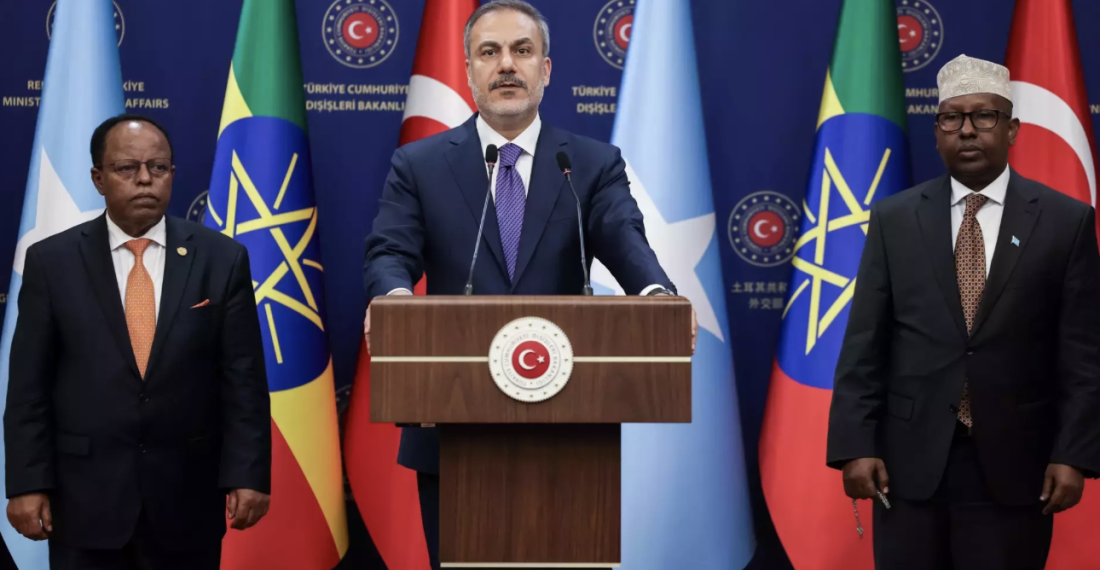Türkiye mediated talks between Somalia and Ethiopia on Monday (1 July) to ease diplomatic tensions between the two African neighbours, the Turkish Foreign Ministry said. Ethiopian Foreign Minister Taye Atske Selassie and Somali Foreign Minister Ahmed Moallim Fiqi held a frank and forward-looking discussion on their differences, mediated by Turkish Foreign Minister Hakan Fidan. The negotiations are the latest effort to mend diplomatic relations between the East African neighbours. Tensions arose after Ethiopia signed a memorandum of understanding with the breakaway region of Somaliland in January, which Somalia condemned as a violation of its sovereignty and territorial integrity.
The memorandum was aimed at granting Ethiopia access to the sea through Somaliland in exchange for Ethiopia recognising Somaliland as an independent country. A second round of talks is scheduled for 2 September in Ankara, where both countries reiterated their commitment to the peaceful resolution of their differences and thanked Turkey for its facilitation and constructive contributions.






